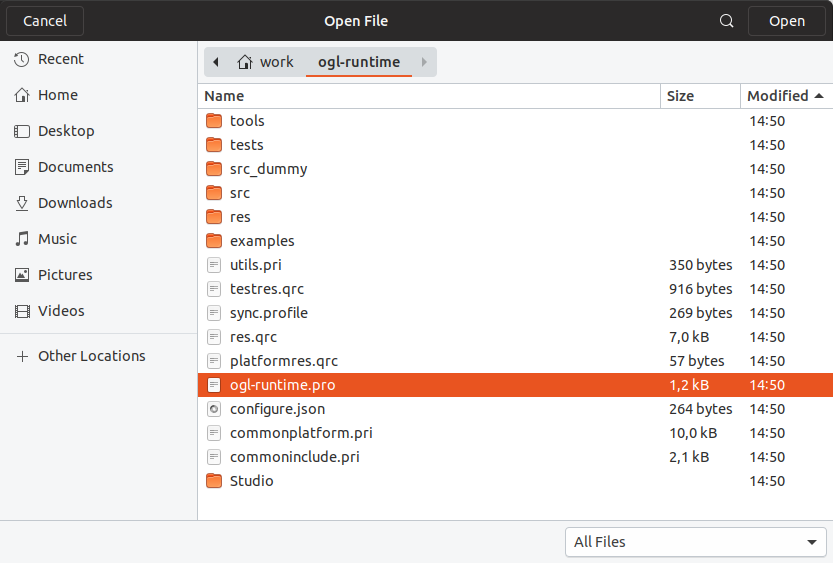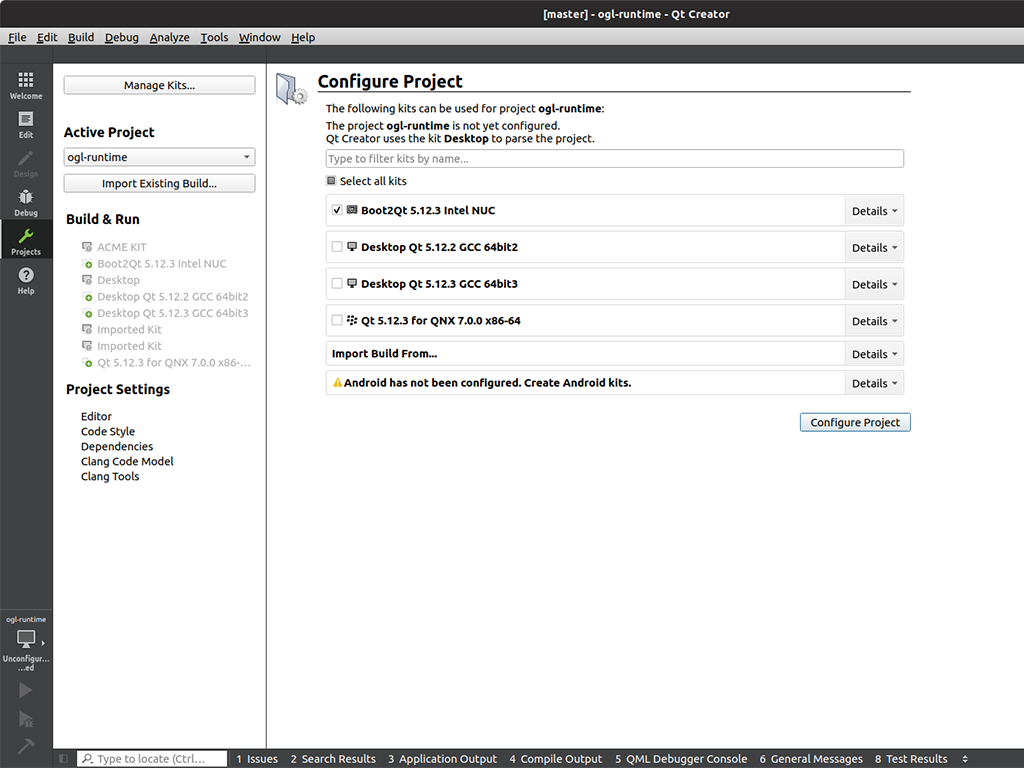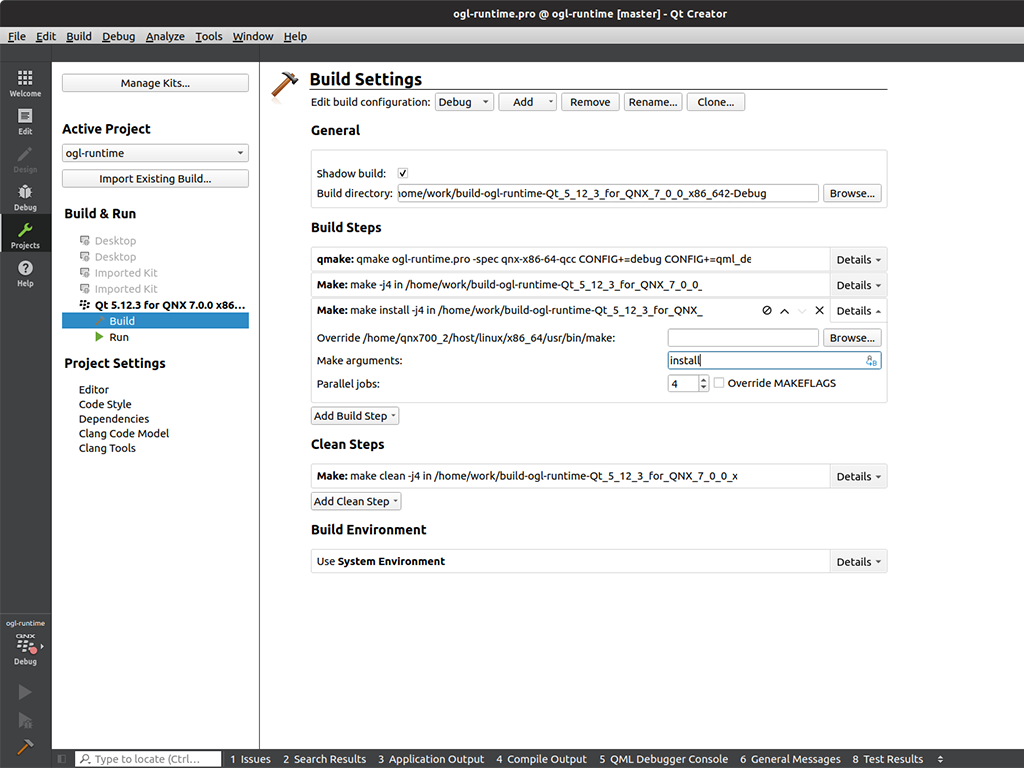Building for Embedded Linux: Difference between revisions
mNo edit summary |
|||
| Line 29: | Line 29: | ||
6. From the menu, select ''Build'' > ''Build Project "opengl-runtime"''. | 6. From the menu, select ''Build'' > ''Build Project "opengl-runtime"''. | ||
== Deploy the OpenGL Runtime == | == Deploy the OpenGL Runtime == | ||
Follow the [https://doc.qt.io/QtForDeviceCreation/b2qt-installation-guides.html Installation guide] for your specific target device. | Follow the [https://doc.qt.io/QtForDeviceCreation/b2qt-installation-guides.html Installation guide] for your specific target device. | ||
Revision as of 05:47, 13 June 2019
Before you build the OpenGL Runtime for Embedded Linux, you will need to install Qt for Embedded Linux.
Install Qt for Embedded Linux
Follow the Installation guide for your specific target device.
Build the OpenGL Runtime
1. Clone the OpenGL Runtime repository from https://code.qt.io/cgit/qt3dstudio/ogl-runtime.git/. You can clone the repo with the git clone command:
git clone git://code.qt.io/qt3dstudio/ogl-runtime.git
Note: If you want to use the HTTPS protocol, you can clone the OpenGL Runtime repo with the following command:
git clone https://code.qt.io/qt3dstudio/ogl-runtime.git
2. Run the following git submodule commands:
git submodule init git submodule update
3. Open ogl-runtime.pro in Qt Creator. ogl-runtime.pro is located in the root of the cloned repository.
4. Select the desired prebuilt Embedded Linux component and select Configure Project.
5. Add a build step with argument install.
6. From the menu, select Build > Build Project "opengl-runtime".
Deploy the OpenGL Runtime
Follow the Installation guide for your specific target device.


